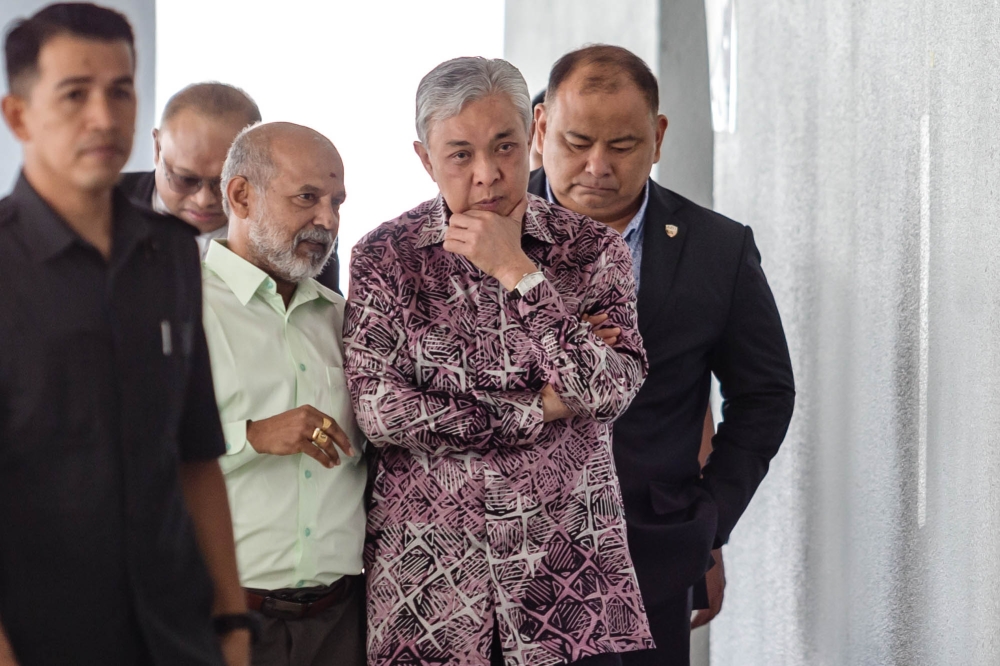AUG 4 — In the case of Re Pengkalan Kota By-Election Teoh Teik Huat v Lim Kean Siew & Anor (1981), by an election petition the petitioner sought to avoid the election of the first respondent on the ground that that a corrupt practice had been committed.
Reliance was placed on a statement published in the New Sunday Times that the Minister of Finance Tengku Razaleigh Hamzah had stated “If the Barisan Nasional win, I will personally give more money for the improvement of Pengkalan Kota.”
The minister of finance in his evidence denied making the alleged statement. He stated what he said was to the effect “If we (meaning the Barisan Nasional) win we shall make allocation to bring more development for the benefit of people in the area.”
The election judge, Justice Abdoolcader, ruled that in the face of all the evidence and in particular the denial of the minister of finance, the petitioner had not achieved that burden of proof incumbent on him to prove that the statement complained of was in fact made.
Even if the statement in question was made, it did not amount to bribery within the meaning of section 10(a) of the Election Offences Act, 1954 and therefore there was no corrupt practice under section 11 of the Act and no ground for declaring the election of the first respondent void.
In his oral judgement the learned judge, one of the country’s judicial giants, said:
“The requisite elements of sections 10(a), 11(1) and 32(c) of the Act for the purposes of these proceedings, in a corrupt practice such as bribery which is alleged in this case [are] the corrupt intention and corrupt inducement to the electors or voters to vote or refrain from voting must exist.
“The corrupt practice of bribery which is a criminal offence by statute must be strictly proved beyond all reasonable doubt by clear and unequivocal evidence, and the inducement to vote or refrain from voting must be exercised upon one or more electors or voters who must be identified as the objects to whom it was made or addressed.”
The learned judge continued:
“In a case of corrupt practice, suspicion, however strong, will not be enough, and the requisite elements of the relevant statutory provision must be established to the degree I have indicated earlier. The utterance complained of as offending against the Act was moreover a promise of public action made by the Minister in charge of the country’s fiscal portfolio.
“Tengku Razaleigh was not himself the Barisan Nasional candidate in the election and there is no reason why he should pledge his personal fortune as is alleged.
“Viewed in the light of the relevant provisions of the Act, the law and the evidence adduced, I can only conclude that the words allegedly uttered by Tengku Razaleigh to the effect that if the Barisan Nasional wins, he would personally give more money for the improvement of Pengkalan Kota ... did not perforce pose or constitute a promise or pre-engagement by him in his personal capacity with any corrupt intention of any designated sum of money or valuable consideration to or for any one or more particular elector or voter for corrupt inducement to exert his or her personal predilection at the polls in favour of the 1st respondent but were in effect and in intention no more than a broad political articulation in his office as Minister of Finance ... and that he was personally in a position within the pale of his portfolio as the Minister to sanction schemes and endorse expenses on behalf of the government.”
Then, in his usual candour and penchant for words, the learned judge ruled:
“To hold otherwise in the circumstances of this case would be to effectuate and sanction a spurious conversion of political proclamations and catchwords manifested as a promise of public action into an inflexible electoral offence with criminal connotations bereft of the essential prerequisites.
“The statement in question even if it was made, and I have factually found it was not, does not therefore amount to bribery within the meaning of section 10(a), and it follows there has been no corrupt practice under section 11, no ground accordingly exists for declaring the election of the 1st respondent void under section 32(c) of the Act.”
Justice Abdoolcader, though, did not conclude without a caveat. His Lordship said:
“I have dealt with the matter before me strictly on its facts and circumstances and what I have said must not be taken to bestow an unbridled licence on would-be political brawn crackers to transcend the twilight zone between campaign pledges and promises and electoral misfeasance, as the next step beyond might well make all the difference.”

Based on the above, no one can “quarrel” with MACC chief Azam Baki over his dismissal of allegations of election bribery against Deputy Prime Minister Datuk Seri Ahmad Zahid Hamidi.
Zahid, the rural and regional development minister, during a ministry event in Terengganu on June 28, announced allocations of RM250,000 to the Terengganu Youth Council and RM200,000 to motorcycle teams throughout the state.
Azam reportedly said the grants were not an offence as they were approved by the federal government, and therefore had no element of bribery.
Like Tengku Razaleigh, Zahid was “within the pale of his portfolio as the Minister to sanction schemes and endorse expenses on behalf of the government”.
*This is the personal opinion of the writer or publication and does not necessarily represent the views of Malay Mail.





















